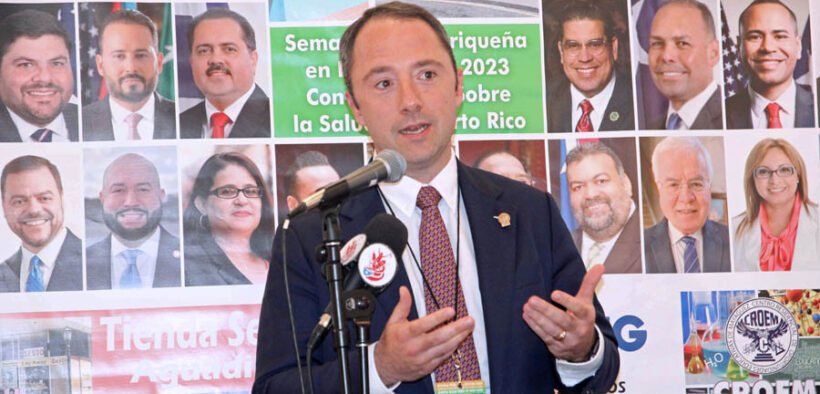Babson College article features oversight board member McKenzie

Puerto Rico’s Financial Oversight and Management Board member discusses the island’s fiscal challenges and his commitment to solutions.
Babson College recently published an article on Cameron McKenzie, a graduate of the Massachusetts-based college who was appointed to the Financial Oversight and Management Board for Puerto Rico late last year.
The article outlines Puerto Rico’s financial struggles, including $72 billion in debt and $55 billion in unfunded pension liabilities, worsened by hurricanes Irma and Maria. McKenzie, a Puerto Rico native and investment banker, expressed the emotional weight of his role and his commitment to the island.
“This is my heart, my home. I became successful here, and I feel it’s my civic duty to give back,” McKenzie said. “But this is a very difficult position, and it’s actually quite painful for me to be on this board emotionally, just because of what’s [transpired] over the last 20 years.”
He credits his Babson education with providing the grit and entrepreneurial mindset to navigate these challenges and push for solutions.
He recognizes the challenges of the role, stressing the importance of responsible budgeting, accountability and legislation that fosters sustainable economic growth.
Before his first board meeting, he felt overwhelmed by the responsibility but was motivated to dig deeper.
Since joining the board, McKenzie has dedicated himself to analyzing the root causes of Puerto Rico’s financial struggles and exploring viable solutions.
“I’ve spent over 100 hours researching, meeting with consultants and speaking with stakeholders to triangulate the data,” he said. “It’s emotionally taxing, but it’s critical work for the future of 3 million Puerto Ricans and the 6 million who would love to return.”
McKenzie envisions financial stability and a socioeconomic revival for Puerto Rico.
“Our focus now is on creating proper systems and guardrails to ensure we never find ourselves in this position again,” he said.
His three-year term presents an opportunity for lasting change.
“It might be difficult, but making changes that will impact future generations of Puerto Ricans? That’s a satisfaction that money can’t buy,” he affirmed.







